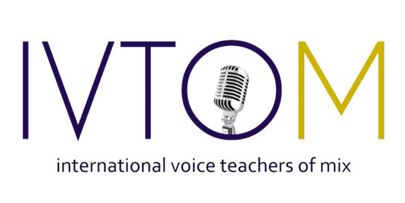College Unified Auditions
Weekly Teaching Tip – Jan. 22, 2018
by Camiah Mongorance
This teaching tip is for teachers who have singers that are taking advantage of the mass college auditions called Unifieds. This year, these auditions take place in New York (January 20-21), Chicago (February 5-8) and in Los Angeles (February 10-11). While all of the locations have their advantages, I will focus on my experience with Chicago Unifieds since it is the largest of the three events. Here are few tips for singers attending these auditions:
● There is nothing unified about Unifieds. Most of the schools are located in The Palmer House and the hotel has a list of schools that are officially registered. However, several schools attend and do not register, so that list that you get at the concierge desk is not complete. Several schools also offer auditions within a few blocks of the Palmer House. There is no one officially in charge and it can feel incredibly disorganized, but if you do your planning well it can be an extremely beneficial event.
● Schedule as many auditions as possible BEFORE you get there. You will have to call/email each school individually to make sure that you have an audition space. Keep these auditions on a master list that you can look at in overview so that you can be sure that you aren’t scheduling auditions too close to each other. A vocal/acting audition can take anywhere from 3 minutes to 30 minutes and frequently the schools run behind schedule so you need some buffer in between those audition times. An hour and half to two hours seems to be good spacing in between auditions. ● The first day that you arrive, go around the main floors (typically third, fourth, fifth and sixth floors) and sign up for any Walk Up auditions that are available and that will fit in your schedule. Some schools charge a fee for a Walk Up audition and some are free. Walk Ups are great ways to be seen by more colleges and hone those audition skills, keeping you fresh and on your toes. I had a student who did a walk up for Royal Conservatory of Scotland (considered one of the best programs in the world) last year thinking she would never get in, but she had time in her schedule so “Why not?”. She is starting her 2nd semester at RCS this month. Take advantage of Walk Ups!
● After you’ve signed up for Walk Up auditions, get familiar with the elevators in The Palmer House. Not all elevators go to all floors and when Unifieds is in full swing, those elevators are loaded and slow. Don’t let an elevator mix up be the reason you miss an important audition.
● Have that audition book well organized and stocked with extra headshots and resumes so you can take advantage of that school that says they’ll take you into the audition right then. If you have to run back to your room for something, the opportunity may be lost.
● Depending on the school, dance auditions last anywhere from 60 – 90 minutes. Plan that in your schedule, with the time to change from dance clothes to audition outfits as well. Most schools offer at least two choices for large dance auditions so choose the one that works best in your schedule. If push comes to shove and you can’t make either of the offered dance auditions for a particular school, contact their department and ask if you can submit your prescreens dance videos in lieu of the dance audition. It’s not ideal, but it’s better than losing the school all together. I’ve had several students use this option with success. You will most likely only use jazz shoes in your audition, but some schools do a full ballet bar and may want you in your ballet shoes. At the end of the audition the choreographer may ask if anyone can tap and give an opportunity for dancers to demonstrate their tap skills. Depending on their schedule they may give time to put on taps, but sometimes you will be asked to demonstrate a tap combo in your jazz shoes. Just go with it.
● Plan ahead and bring your clothes, shoes, extra headshots, speaker, phone with tracks, charger, audition book, etc with you if you won’t have time to come back to your room in between auditions. Parents can be a great help in carrying the needed items and keeping them organized. Make sure you throw a bottle of water and a healthy snack into that bag, because that may be the only nourishment you get for several hours.
● Some auditions will provide an accompanist and some schools will require you to use tracks of your audition cuts. Be prepared with both well cut and marked sheet music and good tracks loaded onto your phone. I would suggest that you also have those tracks backed up on another device, such as your parent’s phone or iPad just in case something happens to your phone. You should also bring your own portable bluetooth speaker especially if you have the newer iPhone. The speaker should be small and inexpensive. It just needs to be powerful enough for you to hear the music. Purchasing an expensive or large speaker is unnecessary because if anyone pays attention to the quality of your bluetooth speaker, you’re not doing your job.
● Parents need to understand the best way to help their children through Unifieds. Basically, they are Sherpas with a checkbook. That is coming from a parent who has done this twice already and will go through it again next year and from a teacher who has attended this event for seven years and has talked with over a dozen college faculties about their audition process. Encourage parents to be supportive, withhold corrections and criticisms, don’t pelt students with questions when they finish an audition, don’t brag about how talented your child is to everyone else in the hallway, etc. Faculty have been known to reject students because their parents were highly obnoxious in the hall. Schools have no time or patience with stage parents.
● With that in mind, the audition starts the second you leave your hotel room. You may very well ride the elevator with an acting teacher from Carnegie Mellon or be standing in the Starbucks line with the pianist from Cincinnati Conservatory of Music. Even the student auditors in the hallway are usually upperclassmen from the school’s theatre department and may be asked to contribute what they observed about you in the hallway while waiting. Make sure you are courteous, focused, supportive and cooperative at all times.
● Once you’re done with an audition, leave it in the past. Move onto your next audition. This is important to survival, not only at Unifieds, but in this business in general. Parents can help singers develop this skill by not asking about the audition that was just completed until later when you are back in your own hotel room. If things didn’t go your way in the last audition, have some strategies ready to help you refocus and prepare for the next audition. Journaling, memorized affirmation statements, meditation/prayer, listening to music, etc are all just a few ideas on how to get you in a good space.
● Ignore some of the bragging or showing off that happens in the hallways of Unifieds. Whether or not they mean it, some people are very good at psyching others out with their quadruple pirouette or bragging about how they are best friends with Laura Osnes or how Texas State University accepted them on the spot. Ignore it. Plug in your headphones and get mentally prepared to do your job. My experience has been that those who employ these intimidation tactics do so out of deep personal insecurity. It’s their issue to work through, not your concern.
● Colleges are looking for potential, not perfection. Be open to re-directs (they’re actually a very good sign). When you forget your words or sing the wrong cut, make a joke of it. Laugh it off and don’t take yourself too seriously. Never apologize – ever. Mistakes happen all the time. Handling mistakes with openness and a sense of humor speaks volumes about your ability to adapt as a performer. Unifieds can be beneficial financially, but it can also be a great education for performers. Preparing artistically, mentally and physically for Unifieds will help singers get the most out of the event and provide insight into their development as a performer.

